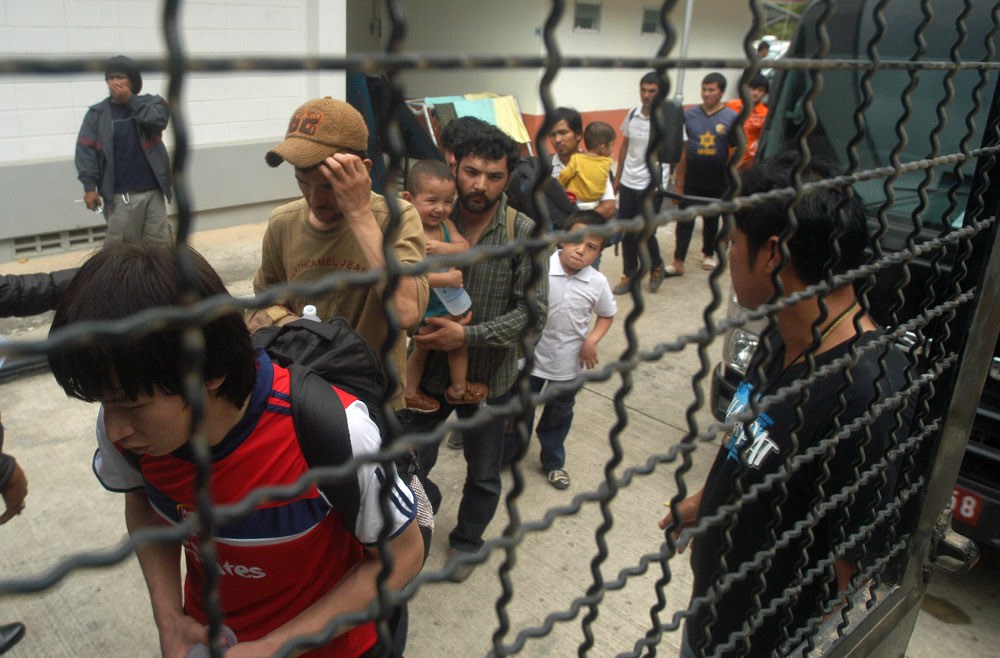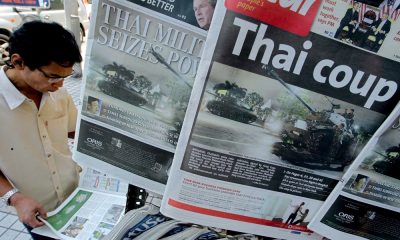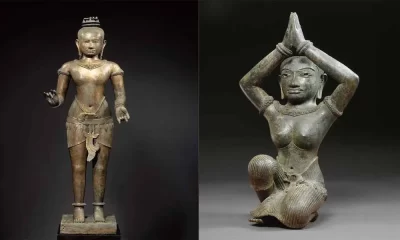News
UN Officials Refuse to Help 48 Uyghur Muslim Detained in Thailand

The Unite Nations refugee agency has turned down pleas from the Thai government to assist 48 Uyghur Muslim asylum seekers from China who have been held in Bangkok for nearly a decade. The UN Officials were concerned over angering China, according to human rights groups.
Internal records obtained by The New Humanitarian demonstrate that the Thai government began unofficially asking the UN High Commissioner for Refugees (UNHCR) to assist in resolving the Uyghurs’ indefinite detention nearly five years ago, despite agency staff in Bangkok advising against it.
Five of the asylum seekers are serving jail sentences for attempting to flee in 2020, while the rest 43 are being kept without trial in the capital’s Suan Phlu immigration detention center, which is hot, foul-smelling, and overcrowded. They cannot communicate with their relatives, lawyers, or even other detainees.
According to the National Human Rights Commission’s 2023 report, Thai authorities have no plans to free the Uyghurs. Thailand is not a signatory to the 1951 UN Refugee Convention.
Thai legislation classifies the Uyghurs’ arrest as a national security issue. This places them under the jurisdiction of the National Security Council (NSC), not immigration authorities. It also prevents them from using the country’s National Screening Mechanism, which allows refugees to live in the country and receive public services.
The UNHCR has long claimed that the Thai government has prevented it from accessing the Uyghurs Muslims in order to collect the information required to grant them refugee status and facilitate their resettlement in a third country, according to The New Humanitarian, which was founded by the UN in 1995 but is now an independent, non-profit organization.
The UNHCR has provided life-saving assistance to millions of asylum seekers around the world, but the Uyghur Human Rights Project (UHRP) reports that China’s growing influence over some host countries undermines “any political or humanitarian will to recognise and duly protect Uyghur refugees” in 2023.
The internal records reveal that China’s influence extends to the refugee agency, according to rights groups who studied them.
“The documents show that UNHCR has failed to uphold its mandate to protect Uyghur refugees,” Fortify Rights head John Quinley stated. “UNHCR leadership does not seem to be proactively trying to find solutions for the Uyghur refugees who are spending years in detention.”
UNHCR spokesperson Babar Baloch, who reviewed excerpts from the documents, told The New Humanitarian that the agency is still raising the Uyghur Muslim issue with Thai authorities, but “at no stage have we been permitted to access the group or engage with the caseload for the purpose of facilitating solutions.” To argue otherwise would be a misunderstanding of what has happened.”
He declined to elaborate, citing confidentiality concerns.
Uyghur Muslim evading oppression
Thailand became a favorite route for Uyghurs fleeing rising authoritarianism in China to Turkey, which has traditionally accommodated Uyghur asylum applicants. The majority of those apprehended in Bangkok were part of a bigger group of approximately 350 people captured by immigration police near the Malaysian border in March 2014.
In July 2015, approximately 170 women and children from the group were liberated in Turkey. About a week later, 109 people were deported to China, the most of whom were men. Their current location are unknown.
The remainder were held in immigration custody in Thailand. At least a dozen people have escaped, and five have died in custody, including two children.
According to one UNHCR document, “there have been increased attempts by [the Thai government] to seek that UNHCR find a solution to the issue” since 2019, with the chance that “Thailand may provide access to UNHCR” to the Uyghur inmates.
However, the agency’s Thailand branch viewed the Thai government’s informal offer with mistrust.
“The [country office] view is that this is so that Thailand may use UNHCR as a shield to deflect the ire of China,” according to a separate memo.
In late 2020, country office personnel decided that “taking pro-active steps before the Thai authorities engage UNHCR officially is not advised”.
UNHCR in China
One document warns of the “risk of negative repercussions on UNHCR’s operation in China” as well as “funding/support to UNHCR”, which includes 10 junior staff posts and $7.7 million in projects.
According to the records, in February 2020, the UNHCR regional bureau for Asia Pacific, the Thailand office, and others explored methods to help the Uyghur Muslims despite “national security” constraints in Thailand.
One option was to “gather information from others,” such as the International Committee of the Red Cross and the International Organization for Migration, another UN body.
However, the Thailand country office warned against “the gathering of information in order to explore solutions” without an official request from the Thai government and the approval of relevant UNHCR offices.
“One of the shocking aspects of these memos is that Thailand was apparently pressuring UNHCR to become more involved, and UNHCR balked because they feared Beijing would become enraged and reduce cooperation or donations to the agency,” Phil Robertson, deputy Asia director for Human Rights Watch, told The New Humanitarian after reviewing the documents.
“UNHCR must refocus on its mandate to protect refugees, and arguably no one in Thailand is more in need of that protection than these Uyghurs,” he told reporters.

































